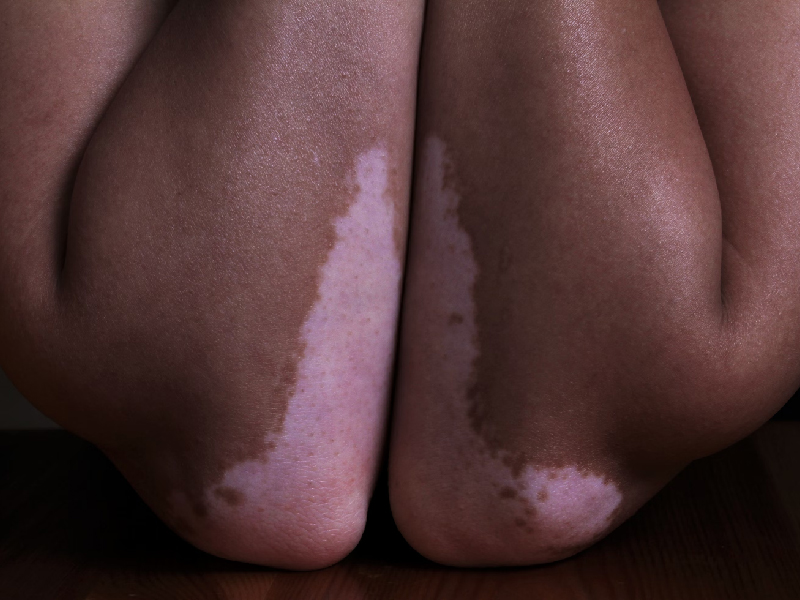Deskripsyon
Vitiligo is a condition where the body’s immune system attacks pigment cells (melanocytes), causing pigment loss. It causes smooth, white skin patches around the mouth, eyes, back of hands and rarely the whole body. Immune system diseases that are associated with vitiligo include diabetes, pernicious anaemia, thyroid disease and Addison’s disease.
There are several treatments available that can help to manage the symptoms and improve the appearance of the skin.
-
Topical corticosteroids: These are creams or ointments that are applied directly to the skin to reduce inflammation and help to restore pigment. They are often the first line of treatment for vitiligo and may be prescribed for mild to moderate cases.
-
Topical calcineurin inhibitors: These are creams or ointments that help to regulate the immune system and reduce inflammation. They may be prescribed for people with vitiligo who cannot use or do not respond to corticosteroids.
-
Narrowband ultraviolet B (NB-UVB) phototherapy: This treatment involves exposing the affected skin to UVB light. It can help to stimulate pigment production and may be used for moderate to severe cases of vitiligo.
-
Excimer laser therapy: This involves using a focused beam of UVB light to target the affected areas of skin. It may be used for small areas of vitiligo and can help to stimulate pigment production.
-
Microskin: This is a cosmetic cover-up that can be applied to the affected areas of the skin. It is a non-invasive option for people who want to improve the appearance of their skin.
-
Depigmentation: This is a treatment option for people with widespread vitiligo that involves removing the remaining pigment from the skin. It can be an effective way to create a more even skin tone, but it is a permanent option and can be difficult to reverse.
It is important to note that treatment options for vitiligo will depend on the severity and location of the condition. You should speak with our doctor to determine which treatment option is best for you.
Albinism, on the other hand, is an inherited disorder caused by the absence of pigment melanin and results in no pigmentation in the skin, hair or eyes. Albinos have an abnormal gene that stops the production of melanin.
There is no cure for albinism. They have to use sunscreen at all times as they have a higher chance to get sun damage and skin cancer. They will also have problems with their eyes (eg decreased vision or abnormal eye movement) and should be seen by an ophthalmologist.
Tingnan ang karagdagang mga detalye tungkol sa SHEEN CLINIC SDN BHD

